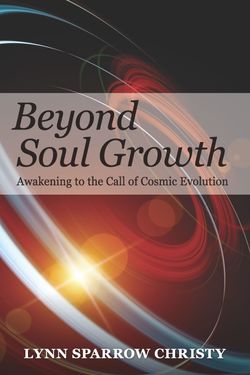Читать книгу Beyond Soul Growth - Lynn Sparrow Christy - Страница 9
На сайте Литреса книга снята с продажи.
Introduction
Оглавление(Q) As created by God in the first, are souls perfect, and if so, why any need of development?
(A) In this we find only the answer in this: The evolution of life as may be understood by the finite mind. In the first cause, or principle, all is perfect. In the creation of soul, we find the portion may become a living soul and equal with the Creator. To reach that position, when separated, must pass through all stages of development, that it may be one with the Creator.
900-10
Has creation a final goal? And if so, why was it not reached at once? Why was the consummation not realized from the beginning? To these questions there is but one answer: Because God is Life, and not merely Being.
Friedrich Schelling*
I could never really accept the idea that this world is fundamentally fallen or broken and that the human beings who call it home are deluded dreamers at best or depraved sinners at worst. Yet everywhere I turned, that seemed to be the prevailing idea. In the churches of my childhood, I heard that God had created a paradise but that the disobedience of Adam and Eve had turned it into the vale of toil and woe which we now experience it to be. In the ostensibly more enlightened circles of my adulthood, I heard essentially the same story, but couched in New Age terminology: We are perfect, immortal beings who have fallen into the trap of earthly life and now must make our way back to our pristine state beyond materiality. As the story is most often told in both the orthodox and New Age worlds, in the beginning everything was just the way God intended it to be. But, unfortunately, we used our God-given free will to turn our backs on our maker. Where in the orthodox version our first parents disobeyed a key commandment and ate forbidden fruit, in the New Age version we started out in a state of perfection but found the allures of this world to be far more interesting than sitting around somewhere that was nowhere, just being one with God.
The tragic upshot of this cosmic mistake was that we got ourselves stuck here in the earth. We'd only meant to visit this deceptively sparkling prison, but now we find ourselves inmates. With our own misguided choices we have consigned ourselves to the long, arduous path of undoing the bonds of incarceration here on earth. The good news in all of this (as the narrative often goes) comes in the reassurance that sooner or later we'll succeed. Then we'll be back “home,” and everything will be right again, just as it was before we messed things up. This story is not quite as condemnatory, perhaps, as the one that involves the doctrine of original sin and a fallen world. But it still holds the unavoidable implication that our presence in this world is a mistake—something to be undone with as little delay as possible. To continue with the metaphor of my prologue, this philosophy tells us it's time to leave the amusement park and go home.
